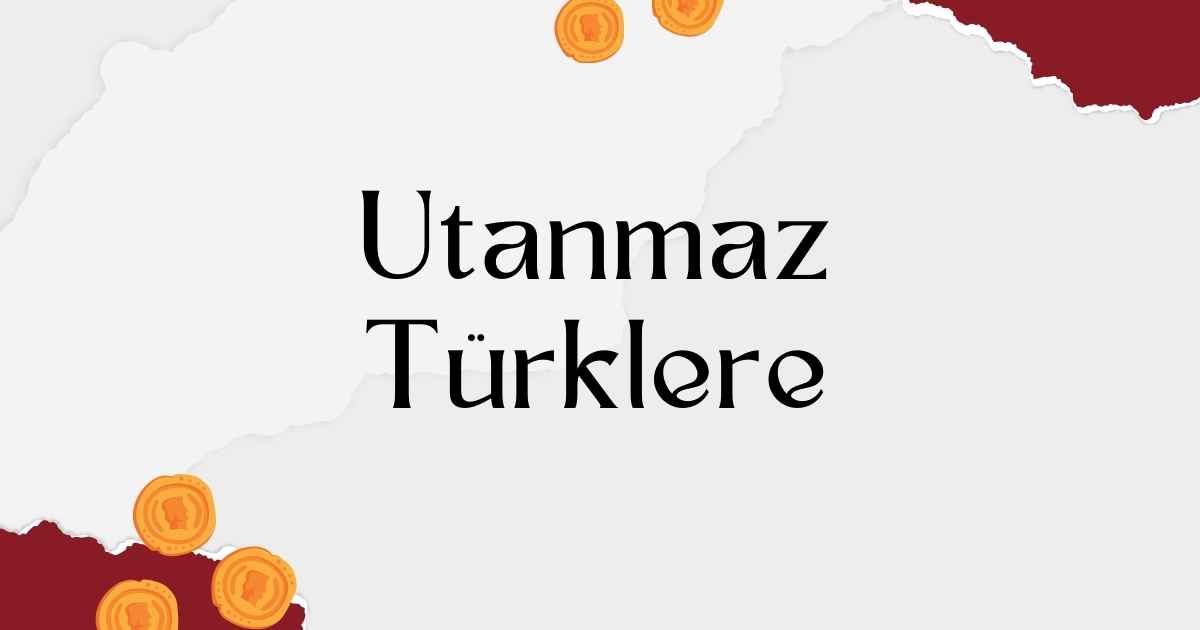The phrase “Utanmaz Türklere” (Shameless Turks) holds significant meaning in Turkish culture, touching on themes of identity, pride, and societal critique. Depending on how it’s used, the expression can evoke reactions ranging from sharp wit to bold defiance, challenging societal norms. In a cultural context shaped by a rich history and complex modern-day issues, the phrase becomes a tool for exploring the fusion of satire with cultural heritage.
Historical Context: Tracing the Roots of Turkish Identity
To understand the phrase “Utanmaz Türklere,” we must first examine Turkish identity’s historical evolution. Over centuries, Turkish identity has been shaped by migration, empire-building, and socio-political shifts.
1. Central Asian Roots
The Turks originated in Central Asia, where they developed languages, customs, and social structures. As Turkic groups moved westward, they encountered various cultures in the Middle East, Europe, and Asia Minor, leading to a blend of traditions that shape Turkish identity today.
2. The Ottoman Influence
The Ottoman Empire, which spanned Southeast Europe, Western Asia, and North Africa for over six centuries, was pivotal in molding Turkish identity. The empire, with its diverse ethnic and religious makeup, created a multicultural society where Turks played key roles in governance and military affairs. The Ottoman legacy of cultural fusion and its unique governing system still resonate in modern Turkish identity.
3. Modernization and Westernization
In the early 20th century, Mustafa Kemal Atatürk implemented reforms to modernize Turkey and align it with Western standards. These changes, which included secularizing the state, establishing a national education system, and promoting patriotism, significantly reshaped Turkish society. As Turks adapted to these reforms, they balanced tradition with modernity, influencing how they saw themselves in a changing world.
The Role of Satire in Turkish Culture
Satire has long been an essential part of Turkish culture, offering a means to critique power, societal norms, and cultural practices. Turkish literature and media have a rich tradition of using satire to spark reflection, provoke dialogue, and question authority. The phrase “Utanmaz Türklere” aligns with this practice, providing a framework for examining Turkish heritage and behavior.
1. Ottoman Satire
Satire flourished in the Ottoman Empire through literature and theater. Writers and actors used humor to address issues such as corruption, bureaucracy, and inequality. Satire became a way to challenge authority subtly in an environment where direct criticism carried risks.
2. Republican Satire
Following the fall of the Ottoman Empire, satire remained a crucial medium during Turkey’s early republican period. Authors, journalists, and cartoonists used satire to critique political leaders and social issues, contributing to the public discourse.
3. Contemporary Satire
Today, satire continues to play a significant role in Turkish media and popular culture. From satirical magazines to television programs and online platforms, satire provides an outlet for criticism and a space to question societal norms. The phrase “Utanmaz Türklere” acts as an instrument in this ongoing tradition, allowing Turks to explore issues of self-perception, honor, and societal expectations.
Understanding “Utanmaz Türklere”
The phrase “Utanmaz Türklere” carries layered meaning depending on context, oscillating between criticism and a declaration of independence from societal norms.
1. Cultural Critique
Often, “Utanmaz Türklere” is used to criticize behavior deemed shameless or improper by societal standards. It can be directed at individuals or groups who are seen as disregarding social expectations or engaging in corrupt behavior.
- Examples of Critique: The phrase could highlight behaviors such as dishonesty, corruption, or a lack of respect for tradition, holding individuals or institutions accountable for actions considered unethical or dishonorable.
- Cultural Reflection: By critiquing these behaviors, the phrase invites reflection on the values and principles of Turkish society, encouraging a dialogue on what constitutes proper conduct and how societal norms evolve.
2. Satirical Pride
In other contexts, “Utanmaz Türklere” can be seen as a badge of pride, representing boldness and defiance against societal norms. This usage embraces the “shameless” label, transforming it into a symbol of individuality and resistance.
- Embracing Identity: By owning the term “Utanmaz,” individuals or groups assert their independence from societal pressures, embracing a more rebellious identity that challenges conformity.
- Wit and Irony: The satirical use of “Utanmaz Türklere” often includes humor and irony, pointing out the absurdity of societal expectations or highlighting contradictions within Turkish culture.
The Power of Satire in Turkish Media
Satire plays a critical role in Turkish media by shaping public discourse and providing a platform for critique. It encourages transparency, accountability, and dialogue, enabling people to challenge established norms and authority figures.
1. Satirical Magazines and Publications
Turkey has a strong tradition of satirical magazines that use humor to critique political and societal issues. Prominent examples include Penguen and Leman, both of which are known for their sharp commentary on corruption, censorship, and social inequalities.
- Challenges and Censorship: Despite facing censorship and legal challenges, these publications continue to play an important role in promoting free expression and stimulating discussion.
2. Television and Social Media
Satire has expanded into television and social media, where it reaches a broader audience and sparks conversations about important topics.
- Satirical TV Shows: Popular Turkish television shows often use comedy and parody to comment on current events, offering viewers alternative perspectives and critiques of political or societal developments.
- Social Media Platforms: Social media has become a crucial platform for satire, allowing users to share content, participate in discussions, and challenge authority through humor and wit.
Broader Implications
The phrase “Utanmaz Türklere” and the broader tradition of satire in Turkey offer insights into the evolving nature of identity, societal values, and the importance of dissent in a rapidly changing world.
1. Identity and Pride
Satire and expressions like “Utanmaz Türklere” reflect the tension between tradition and modernity in Turkish society. They demonstrate the significance of defining one’s identity and using humor to navigate societal expectations.
- Balancing Tradition and Progress: Turkish culture faces ongoing challenges in harmonizing traditional practices with modern ideals. Satire provides a space to explore this tension and shape identity in a rapidly evolving world.
2. Dissent and Dialogue
Satire encourages dissent and fosters meaningful dialogue, prompting individuals to reflect on societal norms and participate in conversations about the direction of society.
- Challenging Power: Satire questions authority and demands transparency and accountability from those in power, encouraging people to think critically about political and social structures.
- Facilitating Conversation: By providing a platform for diverse viewpoints, satire fosters empathy and understanding, encouraging deeper engagement with societal issues.
Conclusion
The phrase “Utanmaz Türklere” captures the essence of Turkish heritage and the role of satire in shaping societal discourse. Whether used as a critique or a form of pride, it reflects the fluid nature of identity and the power of humor to engage with the complexities of modern life. Through satire, Turks navigate the challenges of tradition and modernity, participate in public debate, and celebrate the diversity and resilience of their culture.




